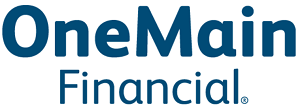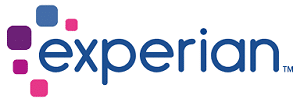Editorial Note: We earn a commission from partner links on Doughroller. Commissions do not affect our authors’ or editors’ opinions or evaluations. Learn more here.
Bad credit affects people from all walks of life. A low credit score may result from expensive medical treatments, career setbacks, or improper financial management. Whatever your case, if you have bad credit, the good news is you have several loan options available. Below, we look at the best personal loans for bad credit.
Best Personal Loans for Bad Credit
| Personal Loan for Bad Credit | Best Feature |
| Upgrade | Longest Terms |
| Upstart | Best APR Range |
| Avant | Lowest Fees |
| LendingPoint | Quickest Decision |
| OneMain | Lowest FICO Score |
Upgrade
Upgrade leads our list as the best place to find your personal loan for bad credit. They offer loan amounts ranging from $1,000 to $50,000 and loan terms that extend as high as seven years. The fixed rate APR range for all loans is 8.49% – 35.99% depending on your credit history and profile.
All personal loans from Upgrade will incur an origination fee of 1.85% – 9.99% which is immediately deducted from the loan proceeds. If you qualify for the lowest rates that Upgrade offers, it will include autopay repayments. There is no fee for paying back your loan early and there is no impact on your credit score when figuring out your rate and repayment loan term.
Upgrade also offers a Premier Savings Account that currently has a robust 5.21% APY on balances of $1,000 or more.
- Loan Amounts – $1,000 – $50,000
- Loan Terms – 12 months – 84 months
- Loan APR – 8.49% – 35.99% (Fixed)
Upstart

Loan amounts on Upstart range from $1,000 to $50,000 and you can choose a loan term of 3 or 5 years. Each loan will come with a fixed interest rate of 5.20% – 35.99% and you can prepay your loan at any time without a fee or penalty.
Before a credit pull, you can check your rate with Upstart in a matter of minutes. If you like what you see, select your desired term and loan amount, and 99% of loans are funded in one business day. Upstart charges an origination fee of up to 12% per funded loan.
- Loan Amounts – $1,000 – $50,000
- Loan Terms – 3 or 5 years
- Loan APR – 5.20% – 35.99% (Fixed)
Avant

Avant offers a little bit more flexibility than most, providing loans ranging from $2,000 to $35,000. There are many loan term options starting at 12 months and working up the ladder to the longest term of 60 months. The fixed rate APR range is 9.95% – 35.99% depending on your credit score.
Avant charges an administrative fee of up to 4.75% and that will vary depending on the loan you select. Loans can be funded as quickly as one business day and you can explore your rate options before a hard credit pull.
- Loan Amounts – $2,000 – $35,000
- Loan Terms – 12 months to 60 months
- Loan APR – 9.95% – 35.99% (Fixed)
LendingPoint

LendingPoint is an AI-based loan provider offering loan amounts that range between $2,000 and $36,500. Loan terms start at a low of 24 months and end at a high of 72 months (the second highest on our list). The fixed APR range for all loans is 7.99% to 35.99% depending on your credit history.
A loan origination fee of up to 10% is charged for each loan through LendingPoint. After approval, loans are funded via ACH in as little as one business day and there is no prepayment fee or penalty for paying your loan down early. When checking your rate and term options, a soft credit pull is performed which will not affect your credit score.
- Loan Amounts – $2,000 – $36,500
- Loan Terms – 24 months to 72 months
- Loan APR – 7.99% – 35.99% (Fixed)
OneMain Financial
OneMain Financial offers loan amounts ranging from $1,500 to $20,000. There are four loan terms offered (24,36,48 and 60 months) and the fixed rate APR range is 18.00% – 35.99% depending on your credit history. OneMain offers a calculator to help you figure out exactly how much you’ll need and how long it will take to pay back.
An origination fee of between 1% and 10% is applied for each loan and that fee can be represented as a flat amount depending on the state you live in. Your credit will not be affected while you check your rate and term options and OneMain Financial has the added benefit of having about 1,400 physical branches nationwide.
- Loan Amounts – $1,500 – $20,000
- Loan Terms – 24 months to 60 months
- Loan APR – 18.00% – 35.99% (Fixed)
Personal Loans for Bad Credit to Avoid
If you have a low credit score, you may think you should take what you can get. However, some loan sources’ borrowing costs are too high, and you are better off spending the time to find a loan with the best rates. Below, we look at loan sources to avoid.
Subprime Loans
Various lenders offer subprime auto loans to borrowers with low credit scores. However, subprime loans are generally expensive and come with high interest rates. Some subprime interest rates are three times higher than those for an average auto loan.
Subprime auto lenders are willing to extend loans to borrowers with low credit scores because of the high-profit potential. If you fail to make your loan payments, some lenders will have no problem repossessing your car and selling it to the next borrower.
You also run the risk of a loan default, which will lower your credit rating even further. In some states, you will remain liable for the outstanding loan amount after repossession.
No-Credit-Check Loans and Guaranteed Approval Loans
The loan sizes and repayment mechanisms of no-credit-check and guaranteed approval loans are similar to those of installment loans. However, the interest rates and hidden fees of these loans are significantly higher. For example, the APR on a guaranteed approval loan can be as high as 500%.
Payday Loans
With payday loans, you borrow the amount you need from the lender and pay it back when you receive your next paycheck along with an additional fee. These loans typically don’t involve a credit check or application process, but they come with a high borrowing cost.
A payday lender can charge a fee of up to $30 or higher for every $100 you borrow. Even a relatively low fee of $15 for a payday loan of $100 amounts to an annual interest rate of 390%.
Payday loans may seem like the ideal short-term solution if you need cash immediately. However, with the quick turnaround times for these loans, borrowers often need to repeatedly renew their loans, which ramps up fees.
Related:
How to Choose the Best Personal Loan for Bad Credit
Several factors determine the best personal loan for bad credit that fits your needs and financial situation.
- Eligibility requirements: Before lenders extend you a loan, you have to meet specific requirements. Institutions will typically list minimum credit scores, minimum income, and maximum debt-to-income ratio as requirements.
- Interest rates and loan fees: The borrowing costs of a loan are significant in choosing the best bad credit loan company. While these costs are generally higher for borrowers with bad credit, you should spend some time shopping around and finding the cheapest loan.
- Repayment term: A short loan repayment term is best if you want to minimize interest or do not want to remain in debt for long. On the other hand, if you want to reduce your monthly loan repayments, select a loan with a longer repayment term of four to five years.
- Lender: If you prefer to do business in person, consider applying with your local bank branch or credit union. Online lenders such as loan aggregators don’t provide a personal service, but their interest rates are generally the lowest.
Other Types of Bad Credit Personal Loans
Cash Advances
A cash advance is a short-term loan that credit card issuers offer their clients. When you take out this loan, you’re borrowing cash against your card’s available balance. A cash advance is one of the most convenient types of bad credit loans, but they are expensive.
Cash advance fees are the most significant expenses of cash advances. You’ll either pay a flat fee per cash advance or a percentage of the cash amount. The interest on a cash advance is typically much higher than the rate on purchases. The interest will also start accruing immediately upon approval.
You should only consider this type of loan if you have an emergency. If you rely on cash advances to pay for everyday expenses, consider using the services of a credit counselor.
Bank Agreements
Bank agreements are minimal overdraft agreements or short-term loans that banks offer their clients as part of their financial products. Banks typically offer agreements to clients with low credit scores. However, to be eligible for these loans, you may have to meet several requirements that include a steady income.
A short-term loan or overdraft agreement is ideal if you need funding fast for a specific purpose. Bank agreements are not suitable to fund everyday expenses, as their interest rates and fees are relatively high.
Contact your local bank branch to find out if they have bank agreements available.
Home Equity Loans for Bad Credit
Home equity loans are similar to secured personal loans. With this type of loan, you borrow a lump sum of cash, using your home’s equity as collateral. If you fail to pay the loan’s fixed monthly installments, the lender has the right to seize your property.
A home equity loan is easier to get than an unsecured personal loan if you have a low credit score, provided that you have a property to offer as collateral. The interest rates of home equity loans are generally lower than those of personal loans and credit cards.
Whether or not this loan is ideal for you depends on your risk tolerance. If your income is too small to support your lifestyle and make your monthly loan repayments, you run the risk of losing your home.
Home Equity Line of Credit (HELOC) for Bad Credit
In essence, HELOCs are similar to home equity loans. You borrow from a lender such as a bank or credit union with your home as collateral. However, instead of borrowing a lump sum of cash, a HELOC allows you to borrow money as you need it similar to a credit card.
This type of loan is ideal for funding long-term projects, for example, multiple home improvement projects over a year. A HELOC is relatively easy to get if you have a low credit score, but you have to repay the funds at a variable rate.
Related: Can You Really Pay Off Your Mortgage Early with a HELOC?
Student Loans for Bad Credit
A common problem among students is that they don’t have the credit history to get a loan and pay for their education costs. In many cases, education funding is not the purpose of standard personal loans.
Student loans for bad credit are often the only way to get funding for tuition fees, textbooks, and accommodation. If you have a low credit score, the lender may require a qualified person to co-sign the loan agreement.
The rates and fees of student loans vary from lender to lender. If someone is willing to co-sign your agreement, shop around to find the best rates. A high interest rate can increase your borrowing costs significantly over the long run, so it is critical not to accept the first loan offer you receive.
Learn More: Best Student Loan Without a Cosigner
How to Spot Bad Credit Personal Loan Scams
Fraudsters often use bad-credit loan scams to access your sensitive personal information or collect upfront collateral or fees without lending you any money.
- No approval process: Before making you a loan offer, authorized financial services and credit providers will obtain and check your credit report and assess your income and payment history. A lender who extends a loan offer without evaluating your financial situation is likely a scammer.
- Unsolicited calls: If you haven’t recently applied for a loan, reputable lenders will not contact you via phone or email with an unsolicited loan offer. When a lender calls you, requests your personal information, and guarantees approval without doing a credit check, be careful.
- The lender tries to pressure you: Scammers often try to pressure targets into accepting their loan offers by offering low-interest rates for a limited time. Reputable lenders don’t use hard-sell tactics, and their loan offerings are generally consistent over time.
- No license to operate in your state: According to the Federal Trade Commission, all lenders should register as credit providers in the state where they do business.
- Upfront payments: Legitimate lenders will never require upfront cash payments before starting the application process. Another red flag is if the lender asks for loan repayment in the form of a prepaid credit card or gift card.
- No secure website or physical address: When researching a lender, ensure that its website address for any sensitive data entry starts with “HTTPS” and displays a padlock symbol before you enter your personal information. The website should also list a physical address for the company.
What Is Considered Bad Credit?
Different credit scoring models exist for determining a person’s creditworthiness. The three main credit bureaus Experian, TransUnion, and Equifax developed VantageScore, a model that many lenders use:
- 300 499 (bad)
- 500 600 (poor)
- 601 660 (fair)
- 661 780 (good)
- 781 850 (excellent)
Several factors can lower your credit score. For example, if you repeatedly miss payments on your credit card, apply for a lot of credit in a short time, or frequently change your address, your credit score will drop.
Bankruptcy, court judgments, and mistakes on your report can also harm your credit score. If your credit score is low, lenders will see you as a high-risk borrower, reject your application, or offer you credit at a higher rate.
Fortunately, there are steps you can take to improve your credit score.
How to Improve Your Bad Credit
The most effective way to increase your credit score is with Experian Boost, a free service allowing you to link your telecom and utility accounts to your Experian credit report. Every time you make an on-time payment to the linked credit accounts, your credit improves.
To sign up for Experian Boost, you must have at least one active account, such as a credit card. Examples of eligible payments you can link include:
- Landline and mobile phones
- Cable, satellite, and internet
- Gas, electric, and solar
- Water and sanitization
- Streaming subscriptions, including Netflix, HBO, Hulu, Disney+, and Starz
Read our Experian Boost Review
Learn More:
Document Requirements for a Personal Loan Application When You Have Bad Credit
When applying for a loan with bad credit, you need to submit several documents. The specific documents a lender requires depend on the loan type, but they generally include:
- The lender’s loan application: Each lender has specific application forms you have to complete and submit.
- Proof of identity: Most lenders require two identification documents, such as your passport, state-issued ID, driver’s license, or Certificate of Citizenship.
- Proof of address: Documents such as a utility bill or rental agreement proves your lifestyle’s stability.
- Income-verification documents: Lenders require income-verification documents for bad-credit applications, including recent pay stubs, tax returns, 1099s or W-2s, and bank statements.
- Vehicle details: If you apply for an auto loan, you have to provide your vehicle’s make, model, VIN, and resale value.
- Reason for your application: If you have bad credit, the lender may require that you furnish a written explanation of your situation and extenuating circumstances for example, divorce, job loss, or medical problems.
Frequently Asked Questions (FAQ)
How much can I borrow if I have bad credit?
The amount you can qualify for with bad credit depends on several factors, including the loan type, your credit score, and the lender’s loan policy. Whether the loan is secured or unsecured also determines the loan amount. In the case of a secured personal loan with collateral, you can borrow higher amounts, even if you have a low credit score.
Personal loan amounts generally range from $1,000 to $50,000. However, to borrow at the high end of this range, you will need a sizeable, steady income and an asset you can put down as collateral.
Can I get a loan if I am unemployed?
It is possible to get a loan if you are unemployed, especially if you earn regular income in the form of stock dividends, Social Security benefits, disability income, or child support. If you can back your application with an excellent credit score, lenders may grant you a loan if you are unemployed. Unemployed applicants with a low credit score are rarely successful with loan applications. In these cases, lenders are often apprehensive about making loan offers, even if you’re applying for a secured loan with a high-value asset as collateral.
Do I have to put down collateral to get a bad credit loan?
If you are applying for an unsecured loan, you don’t have to put down collateral. Unsecured loans are viable options for borrowers who don’t own assets. However, if you have a low credit score, lenders are more likely to qualify you for secured loans.
Do I need a checking account to get a loan?
Most lenders require that you have a checking account so they can gauge your banking and payment history. If you don’t have a checking account, you can still get a loan, but you will likely have to offer collateral. You can also apply for payday loans without a checking account, but this type of loan is expensive.
Can I get a loan without a credit check?
With some loan types, lenders don’t require a credit check, but they compensate for the increased risk by charging high interest and fees. Additionally, lenders who don’t do credit checks tend to implement more aggressive collection tactics, including your assets’ repossession. When a lender doesn’t require a credit check, make sure you don’t walk into a loan scam. In these cases, the lender will often charge an upfront fee.
Final Thoughts
Are you looking to apply for a loan with bad credit? You have several options available to secure a loan at affordable rates and fees. Start by improving your credit score with Experian Boost, and organize your finances to ensure that all your payments go out on time.
When shopping for loans, stick to reputable lenders such as banks, credit unions, online loan aggregators, and peer-to-peer lenders. Collect as many loan offers from lenders as you can, and make sure that you accept the offer with the lowest interest rates and fees. The loan term should also fit your financial situation.
Before accepting a loan offer, ensure that there are no limitations so that you can use the loan for whatever purpose you want.





